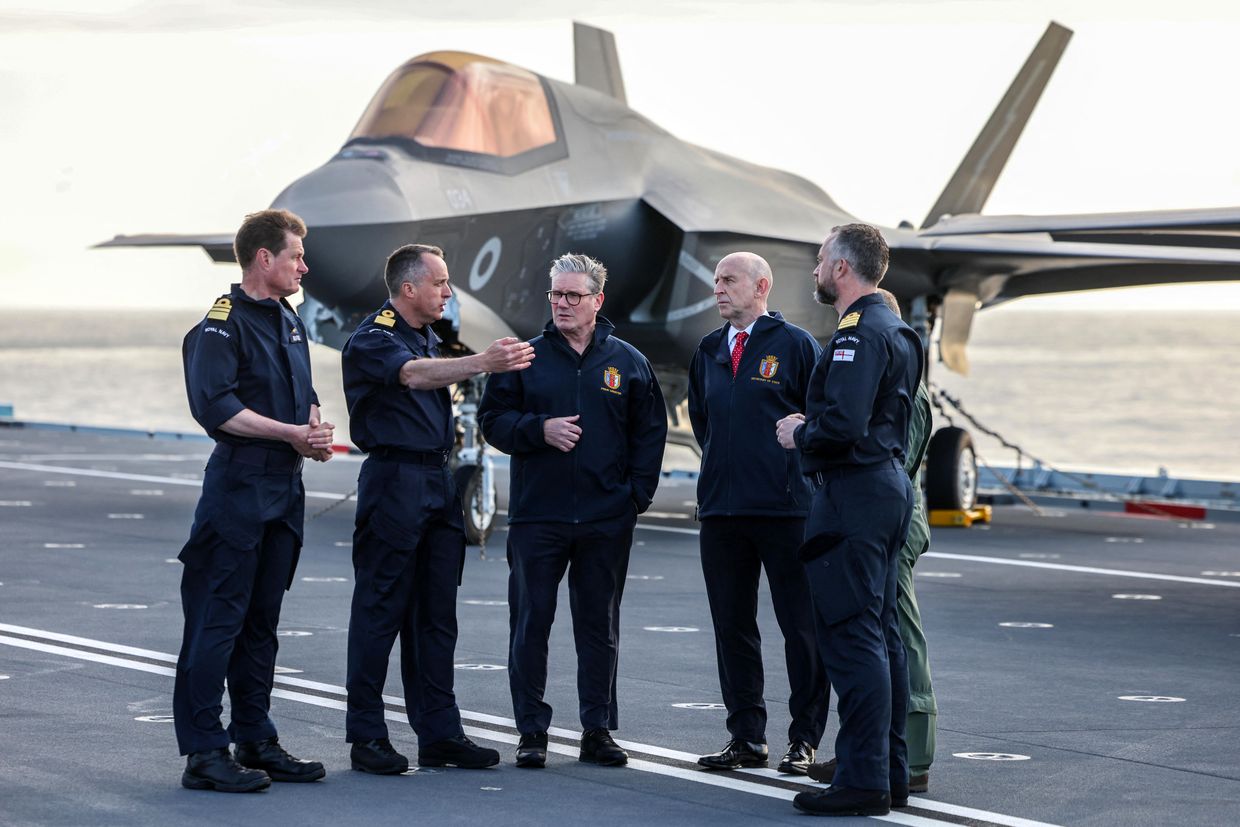Russia doubts NATO's Article 5, could use 'little green men' to test it, German intelligence chief warns

Russia wants to test NATO's resolve by hostile steps beyond Ukraine, as some Russian officials believe the alliance's collective defense principle no longer works, German intelligence chief Bruno Kahl told the Table Media news outlet in an interview published on June 9.
"There are people in Moscow who no longer believe that NATO's Article 5 works. And they would like to test it," Kahl said in the podcast interview.
The comments come as NATO Secretary General Mark Rutte warned that Russia could be ready to launch an attack against the alliance within five years. Such stark warnings have become increasingly common since Moscow's full-scale invasion of Ukraine in 2022.
The chief of Germany's Federal Intelligence Service (BND) noted that Moscow sees its war in Ukraine as "only a step on its path westward." Citing intelligence sources, he said Russia may seek to start a lower-intensity confrontation that will test the U.S.'s willingness to fulfill its obligations under Article 5.
"They don't need to send tanks for that," Kahl noted. "They just have to send 'little green men' to Estonia to defend the allegedly oppressed Russian minority."
Article 5 refers to a key principle of the North Atlantic Treaty, which obliges all members to treat an attack on one member as an attack on all and provide assistance. The article has been invoked only once, following the September 11 terrorist attacks against the U.S. in 2001.
The term "little green men" was first used in reference to Russian soldiers without insignia who seized key strategic facilities in Crimea in 2014 in the opening phase of the Russian occupation of the Ukrainian peninsula.
Concerns among NATO members about a potential Russian aggression and Washington's commitment to the alliance have grown since U.S. President Donald Trump took office in January.
The new administration has signaled plans to reduce military presence in Europe, and Trump has even directly challenged the collective defense principle by saying the U.S. would not defend NATO members who do not invest sufficiently in their military capabilities.
New German Chancellor Friedrich Merz traveled to Washington last week to meet Trump and discuss joint support for Ukraine and NATO's future. While the talks proceeded relatively smoothly, the German chancellor failed to obtain any concrete commitments from Trump.
Multiple Ukrainian and Western officials have warned that Russia may be preparing for an open confrontation with NATO after ending its war against Kyiv. The preparations may pick up pace if Western sanctions are lifted as part of a potential peace deal, Ukrainian intelligence said.











